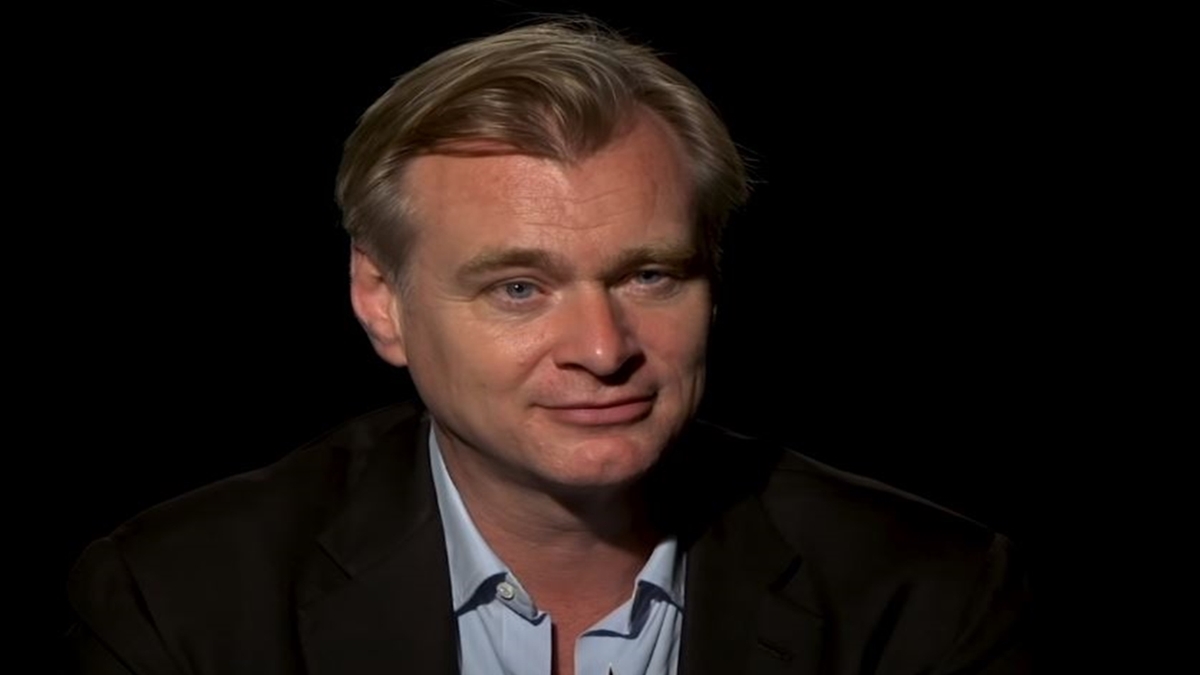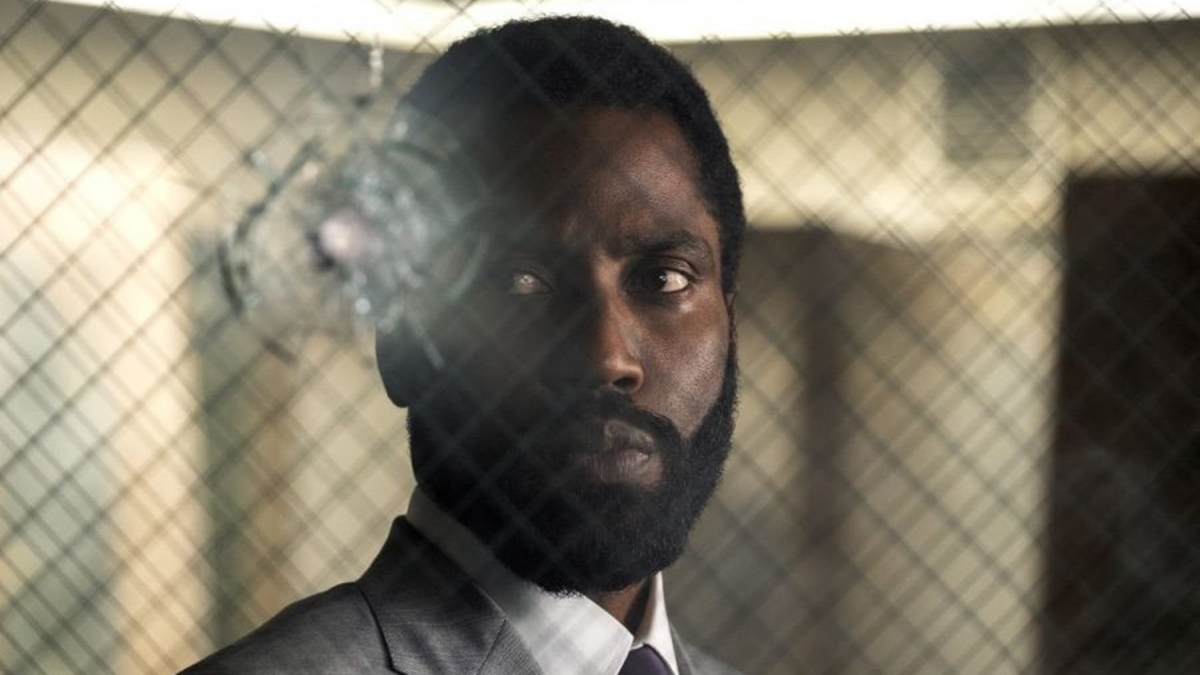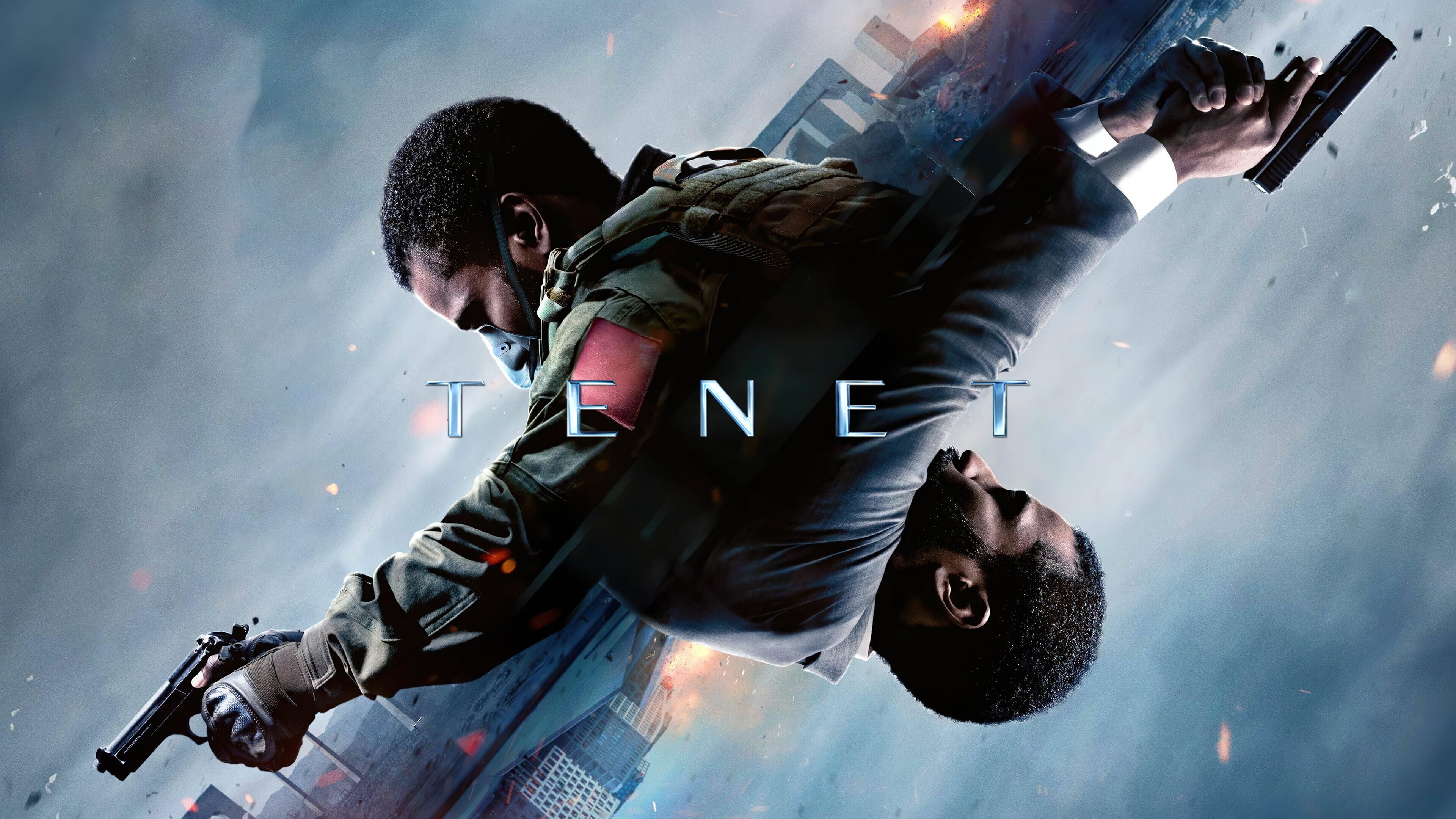Tenet
2020 was supposed to be the Year of the Blockbuster, for beginning July, big-screen extravaganzas galore were expected to bring in waves of people to theatres in anticipation, and walk out, hopefully, sufficiently entertained. The line-up of films included sequels like Wonder Woman 1984 and The King’s Man, adaptations like Dune, and releases from big-ticket directors in the form of The French Dispatch, Last Night in Soho and West Side Story. Commencing the carnival on the 17th of July was the eleventh film by Christopher Nolan – Tenet. Much has been made of the concepts at play in the film, and to bore you all with the same spiel would be a disservice and a distraction. Just bear in mind that Nolan once again fiddles around with the mechanics and the very fundamentals of time, a trick that has virtually become his calling card over the years.
And because there has to be an accompaniment to Time, Nolan fits his entire flight of fancy into the world of espionage, the kind of which is practised today by the world’s most powerful intelligence agencies.
John David Washington’s character belongs to the CIA, and following a crisis in Kyiv, is pulled into a program to stop the Third World War, supposedly worse than nuclear holocaust, which he is supposed to prevent with the help of a few contacts, as is the case in all saviour-based films.
Much has been made of the concepts at play in the film, and to bore you all with the same spiel would be a disservice and a distraction. Just bear in mind that Nolan once again fiddles around with the mechanics and the very fundamentals of time, a trick that has virtually become his calling card over the years.
And because there has to be an accompaniment to Time, Nolan fits his entire flight of fancy into the world of espionage, the kind of which is practised today by the world’s most powerful intelligence agencies.
John David Washington’s character belongs to the CIA, and following a crisis in Kyiv, is pulled into a program to stop the Third World War, supposedly worse than nuclear holocaust, which he is supposed to prevent with the help of a few contacts, as is the case in all saviour-based films.
 Washington does well to embody the everyman qualities of a field operative, though the writing doesn’t demand much of him by way of acting (it’s sadly becoming another major facet of Nolan’s films, that his writing, which structurally and narratively excellent, suffers from poorly-etched characters). He’s easy enough in the role, and the fact that he is still relatively new helps create an aura of believability around his character, known only as “The Protagonist”.
Washington does well to embody the everyman qualities of a field operative, though the writing doesn’t demand much of him by way of acting (it’s sadly becoming another major facet of Nolan’s films, that his writing, which structurally and narratively excellent, suffers from poorly-etched characters). He’s easy enough in the role, and the fact that he is still relatively new helps create an aura of believability around his character, known only as “The Protagonist”.


 Robert Pattinson too gets a raw deal, though he is in most of the film. He chips in with sly wisecracks, treading around the film with the fleetfootedness of secret agents not named James Bond. Nolan lets him down by failing to build the character into anything substantial, giving us just the occasional glimmer of what could have been, a real shame, especially after just how good Pattinson was in The Lighthouse.
Robert Pattinson too gets a raw deal, though he is in most of the film. He chips in with sly wisecracks, treading around the film with the fleetfootedness of secret agents not named James Bond. Nolan lets him down by failing to build the character into anything substantial, giving us just the occasional glimmer of what could have been, a real shame, especially after just how good Pattinson was in The Lighthouse.
 It falls to Elizabeth Debicki [The Night Manager, Widows] to do the hard-hitting, and she succeeds in making you feel for the underwritten Kat, wife to a savage, dangerous billionaire. As the only one in the entire film not fighting for something greater – where The Protagonist, Neil, and Priya are going all out to prevent a catastrophe, all Kat wants to do is protect her son – Debicki becomes the de facto emotional centre of the film. The role is reminiscent of her turn in The Night Manager but she overcomes that with ease, delivering a raw, vulnerable performance, every bit of it believable.
It falls to Elizabeth Debicki [The Night Manager, Widows] to do the hard-hitting, and she succeeds in making you feel for the underwritten Kat, wife to a savage, dangerous billionaire. As the only one in the entire film not fighting for something greater – where The Protagonist, Neil, and Priya are going all out to prevent a catastrophe, all Kat wants to do is protect her son – Debicki becomes the de facto emotional centre of the film. The role is reminiscent of her turn in The Night Manager but she overcomes that with ease, delivering a raw, vulnerable performance, every bit of it believable.

At the other end of the spectrum is the most lauded actor of the ensemble – Kenneth Branagh [Dunkirk, Murder on the Orient Express], playing antagonist Andrei Sator, a Russian oligarch who holds the key to the impending disaster “The Pro and Co.” are trying to avert. Branagh delivers a performance that can only be described as stereotypical. And that’s putting it mildly. That Branagh, so accomplished an actor, should choose to use the most annoying, the most overdone Russian accent in the history of film, and that Nolan should agree with the choice (or vice versa, which is as plausible a case) is not something that can be overlooked, and the result is a villain whose most menacing moments are the ones in which he keeps his trap shut.
The old guns that are Andrew Jackson and Nathan Crowley pull off the impossible and the believable respectively, translating the surrealness of Nolan’s script to the reality of the physical world. Much of the film is set to the tone of music, often more so than one would like. Fortunately, Ludwig Görannson’s compositions are pleasant and have their own vibe while remaining in the zone of the film and of Nolan’s work.
Flashes of brilliance and a terrific idea though it might boast, once Tenet starts to stumble, it never really recovers. The first culprit on the film’s list of shortcomings is the sound, mixed in a manner such that it goes from dead silence to earbursting loud in a second. The ambient sound and score often end up drowning out the dialogue, leaving the audience slightly lost in terms of what the film is getting at.
Nolan has always faced criticism for the emotional depth of his writing, and though the lack of character exploration was justifiable in certain films, that isn’t the case here, especially in the cases of Kat and Sator, whose entire investment in the choices they make is emotional, the kind of emotion notwithstanding. Nolan barely scratches the surface in making full-blooded people of them. The second, more fatal flaw in Nolan’s writing is the reams of exposition, another facet of his work that has always attracted criticism. Already the film is a “high concept” one, requiring some amount of explanation from the characters to get things in motion. This Nolan does in a manner reminiscent of a truck unloading its contents in a heap. There’s too much information being conveyed in a single instance, and that too is virtually inaudible thanks to the deafening audio mix. By no means is the film difficult to follow for someone familiar with Nolan’s work and style, but even so, long-winded dialogue is hardly the most audience-friendly way to make it understandable, especially not when it plays out in as dull a manner as it does, with The Protagonist and Neil walking the streets of Tallinn, a scene which reminded me of the part of Inception where Leonardo DiCaprio’s character walks Elliott Page through his mind-boggling plan.
Where Nolan normally manages to rescue his writing by staging his films spectacularly, Tenet falters yet again. Wonderful though the action sequences are, and however terrific the concept might be, Nolan lets his supporters down by delivering easily his dullest, most lifeless film. It’s not cold or clinical. It’s dull. There is a strange seriousness the film suffers from, and the occasional traces of humour are welcome respites in the 150 minutes of flat-out lifeless storytelling. There is no suspense at the moments where there should be at least some, and excitement seems to be the last thing Tenet is capable of eliciting from a viewer. Nolan has done high concept films before and for all their other faults, they are entertainers that require a little use of the loaf. Hell, they are fun. Tenet is not. It’s fascinating for its scale and ambition but it lacks any life whatsoever and becomes a chore towards the end. And not even a rewarding one, at that.


2 Comments